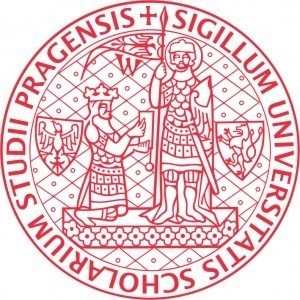Political Science at the University of Humanities and Economics in Lodz offers a comprehensive and interdisciplinary education designed to equip students with a deep understanding of political processes, institutions, and systems both in Poland and internationally. The program aims to develop critical thinking, analytical skills, and a solid knowledge base in political theory, comparative politics, international relations, public administration, and policy analysis. Students will explore the functioning of government bodies, influence mechanisms of political decision-making, and the role of political ideologies in shaping societies. The curriculum combines theoretical knowledge with practical skills, preparing graduates for careers in public administration, diplomatic service, NGOs, media, and private sector organizations involved in policy consulting or lobbying.
The program emphasizes active learning through seminars, workshops, internships, and project work, encouraging students to apply their knowledge to real-world problems. Students will also have the opportunity to participate in international exchange programs, gaining valuable experience and a broader perspective on global political issues. The faculty, composed of experienced academics and practitioners, ensures an engaging educational environment that fosters critical evaluation of political phenomena and ethical considerations. Upon completion of their studies, graduates will be well-prepared to analyze political trends, engage in policy formulation, and contribute effectively to civic life and governance. The program is designed to respond to the dynamic nature of contemporary politics, offering specialization options in areas like security studies, European integration, or public policy. Graduates will receive a Bachelor's degree in Political Science, which provides a solid foundation for further academic pursuits or entry into the professional world.
Specialties
- Politics and management in international environment
- International relations
Politics and management in international environment
Studies at this department develop an understanding of cultural differences, the skills to manage internationally, and the knowledge to navigate the complexities of international organisations. Its goal is also to provide knowledge and understanding of economic specifics of international markets, accounts and risks, trade and negotiations. Graduates gain proficiency in terms and mechanisms of economical and legal procedures crucial for performing on international markets. Comprehensive Politics and Management in International Environment programme enables its students to gain and consolidate their knowledge and to develop practical skills consequently after graduation while efficiently managing companies on international markets.
During the studies we will enable you to progress in:
- communication across different cultures,
- building the confidence to influence clients, suppliers and colleagues from a variety of countries,
- benchmarking your individual management style against preferences from around the world – and learn to adapt accordingly,
- learning how to lead across international matrix systems and other organisational structures,
- operating on international markets,
Gaining fluency in legal, economic and cultural aspects of international entrepreneurship.
International relations
International relations are a specialty for enthusiasts, who want to better understand the forces and dependencies that shape the world today.
Documents required from international students for Study in English programme
Candidates from EU, OECD, EFTA members* (Australia, Austria, Belgium, Bulgaria, Canada, Chile, Croatia, Cyprus, Czech Republic, Denmark, Estonia, Finland, France, Germany, Greece, Hungary, Iceland, Ireland, Italy, Izrael, Japan, Latvia, Liechtenstein, Lithuania, Luxembourg, Mexico, Malta, Netherlands, New Zealand, Norway, Portugal, Romania, Slovakia, Slovenia, South Korea, Spain, Sweden, Switzerland, Turkey, United Kingdom, USA).
- Copy (original for insight) of the higher education diploma (MA, BA, engineer diploma or equivalent, with a full list of grades obtained during the course of study, entitling to continue university-level study in country in which the diploma was issued (sworn translations of the documents into Polish)
- Legalisation or apostille of above mentioned documents (if applicable)
- Passport copy, with visa page (original for insight)
- Visa copy (if applicable)
- English language certificate, min B2 level
- Documents from the Virtual Student's Room - questionnaire, terms and conditions, student's oath, testimony of third parties, an agreement in 2 copies (English, Polish)
- 2 front photographs 3,5 / 4,5 cm, without hats or other garment 2 (unless for religious reasons) H) Health certificate that there are no objections to undertake studies by a foreign candidate (translation of the document if was issued in foreign language), (such certificate can be done in Poland)
- Health insurance copy (cost of treatment and covering in the event of death need to be included), translation of the document, or European Health Insurance Card (EHIC) copy.
Other candidates (countries not being part of EU, OECD, EFTA).
- Copy (original for insight) of the higher education diploma (MA, BA, engineer diploma or equivalent, with a full list of grades obtained during the course of study, entitling to continue university-level study in country in which the diploma was issued (sworn translations of the documents into Polish)
- legalisation or apostille of above mentioned documents (if applicable)
- nostrification of the documents or authentication / confirmation of the level of education in the proper authority (if necessary).
- Passport copy, with visa page (original for insight)
- Visa copy (if applicable)
- English language certificate, min B2 level 3
- Documents from the Virtual Student's Room - questionnaire, terms and conditions, student's oath, testimony of third parties, an agreement in 2 copies (English, Polish)
- 2 front photographs 3,5 / 4,5 cm, without hats or other garment (unless for religious reasons)
- Health certificate (if applicable) that there are no objections to undertake studies by a foreign candidate (translation of the document if was issued in foreign language), (such certificate can be done in Poland) H) Health insurance copy (cost of treatment and covering in the event of death need to be included), (translation of the document), or European Health Insurance Card (EHIC) copy.
The financing of the Political Science program at the University of Humanities and Economics in Lodz is primarily based on a combination of sources, including government funding, student tuition fees, and possibly additional financial aid options. As a public university in Poland, the institution benefits from state subsidies allocated by the Ministry of Education and Science, which support the development and maintenance of academic programs, faculty salaries, infrastructure, and academic resources. These funds ensure that the program maintains a high standard of education, updated curriculum, and access to modern facilities.
Tuition fees are a significant source of revenue for the program, especially for non-EU international students and students enrolled in elective or non-subsidized modules. The fees are set annually in accordance with university policies and are reviewed to account for inflation, program development costs, and the broader economic environment. Domestic students may benefit from government-subsidized enrollment, which reduces their tuition fees under the Polish higher education funding scheme, especially for residents of Poland and EU countries.
The university may also offer a variety of scholarship programs, grants, and financial aid packages designed to support talented students, those from underrepresented backgrounds, or students in financial need. These funds can come from government sources, charitable foundations, or university endowments. Additionally, students might have opportunities for part-time employment on campus or through internships coordinated by the university, which can help offset personal expenses related to their studies.
Research grants and projects contribute to the financing of the program by providing funds for specific research activities, conferences, seminars, and publication efforts within the field of Political Science. Faculty members may secure research grants from national or international agencies, which in turn can enhance the educational offerings and provide practical opportunities for students.
International collaborations and exchange programs also contribute to the funding framework, often supported by European Union funds or bilateral agreements. These arrangements may include funding for joint projects, student exchanges, and faculty mobility, further enriching the educational environment and providing additional resources to the program.
In summary, the financing of the Political Science program at the University of Humanities and Economics in Lodz is multifaceted, combining public funding, tuition fees, scholarships, research grants, and international cooperation initiatives to ensure a high-quality educational experience for students. The university's financial strategy aims to balance accessible education with sustainable growth and continuous development of academic offerings in accordance with national regulations and institutional priorities.
The Bachelor’s degree program in Political Science at the University of Humanities and Economics in Lodz offers students an in-depth understanding of political systems, institutions, and processes at both national and international levels. The program aims to develop critical thinking, analytical skills, and comprehensive knowledge of political phenomena, preparing graduates for careers in public administration, diplomacy, journalism, international organizations, political consulting, and related fields. The curriculum combines theoretical foundations with practical applications, including case studies, research methods, and internships, to ensure students are well-equipped for the demands of the labor market. Courses cover a broad spectrum of topics such as comparative politics, international relations, public policy, political theory, European integration, and security studies. The program emphasizes the importance of understanding contemporary political challenges, fostering engagement with current debates and issues. Students have opportunities to participate in seminars, workshops, and conferences, which enhance their academic and professional development. Additionally, language proficiency is prioritized, with courses often offered in English to prepare students for international cooperation and careers. The university maintains strong connections with public institutions, NGOs, and international organizations, facilitating internships and networking opportunities. The program duration is typically three years, leading to a Bachelor's degree (licencjat). Graduates are prepared to pursue further studies or enter various sectors within government, media, academia, and civil society. The university’s faculty includes experienced academics and practitioners dedicated to providing a high-quality education rooted in research and real-world relevance. Overall, this programme aims to produce versatile, informed, and competent professionals capable of analyzing and addressing complex political issues in a globalized world.









